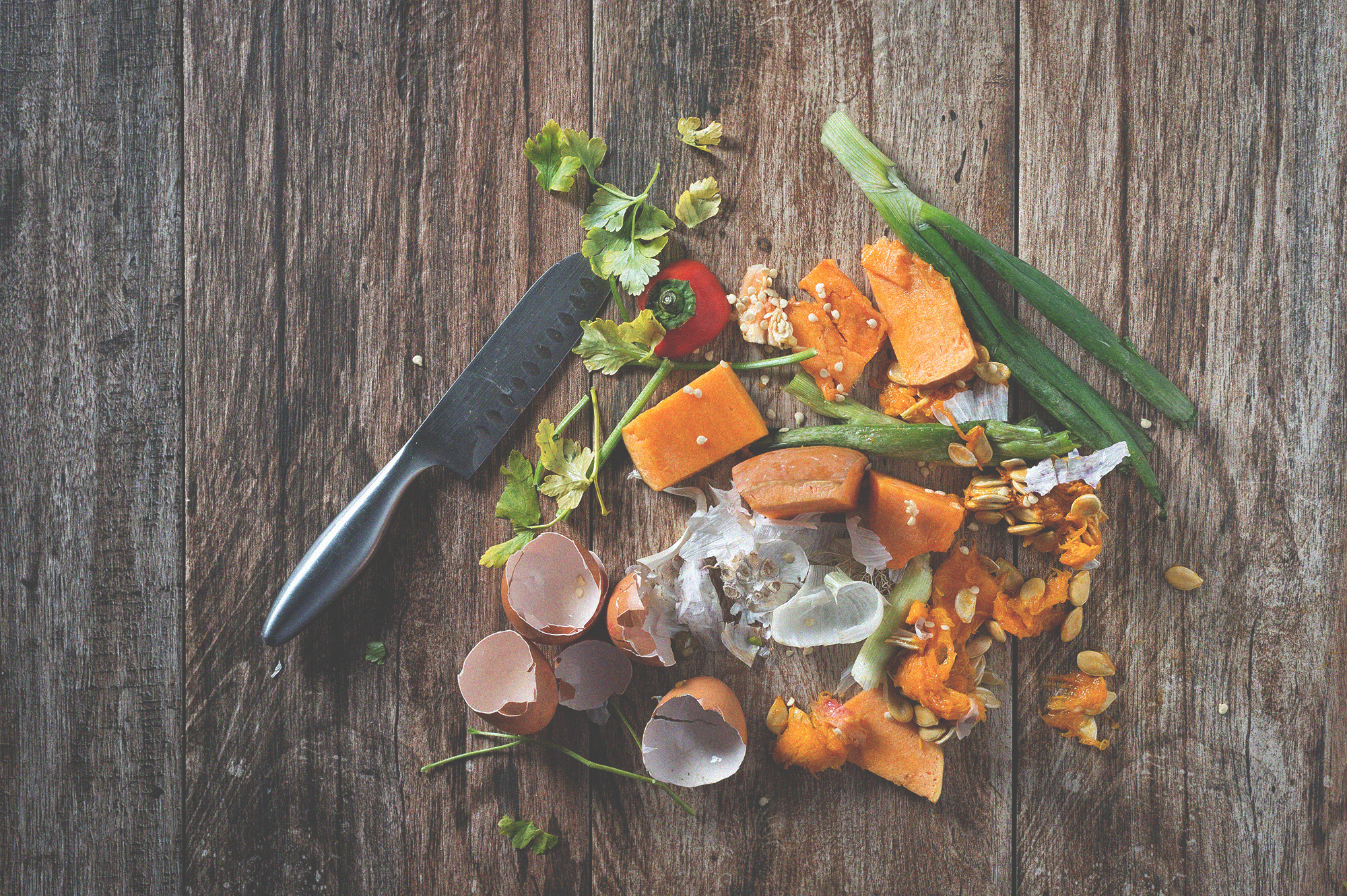Food waste accounts for the majority of waste sent to landfills, generating methane gas that is 25 times more harmful to our environment than carbon dioxide. Know the facts on why and how we can do more to improve our personal, and collective, carbon footprint.
BY: MARCY GASTON, MS, RD, CD
How much do you think about food waste? Probably not much, based on current statistics.
Worldwide, 222 million tons of food is wasted in industrialized countries, compared to the 230 million tons of food that is produced in sub Saharan Africa.
In the U.S., 30-40% of the food supply is wasted, which is equivalent to about 20 lb/person/month.
So where does all this food waste come from? 40-50% are from consumer households, whereas 50-60% come from businesses – restaurants, grocery stores, farms.
Obviously we need to do better.
To make any meaningful large-scale changes in the food system, the government will need to step in and legislate change. But what can you do today in your own home to start preventing food waste?
Compost food waste.
Start by maintaining a compost bin with your food scraps and other organic material that can be easily decomposed into high quality compost and soil.
Only buy food you need.
Write out a menu for the week and grocery shop according to the menu. Having a menu and grocery list reinforces the need to take an inventory of food in the refrigerator and pantry. This will also reduce that amount of time and money wasted in the store…a win-win!
Cook from the pantry, freezer, or fridge.
Prioritize by using foods that are ready to expire. Cook up vegetables and leftovers that are getting past their prime in either a frittata or soup. Freeze any leftover soups and meat to use at a later time. This helps save time and money on days where you don’t want to make a big dinner. It’s comforting to know there is leftover soup in the freezer that can make for a good weeknight dinner.
These are just a few ideas to get started and reduce your impact on food waste. By becoming a more knowledgeable consumer and taking these proactive steps in your household to reduce food waste, you can make a positive impact.
Marcy Gaston, MS, RD, CD is a private practice dietitian and chef based in Whidbey Island, WA. With a focus on integrating cooking and sustainability, Marcy guides individuals towards healthy eating habits that mutually support the food system in order to protect future generations to come.


Thank you for this good comment you are right but not everyone can make what you advance without spreading the news without each individual realizes of all the waste that is done every day whereas some people do not Eat
We definitely agree it’s not realistic for everyone! Just being mindful of food waste whenever you can is already a huge step forward! 🙂